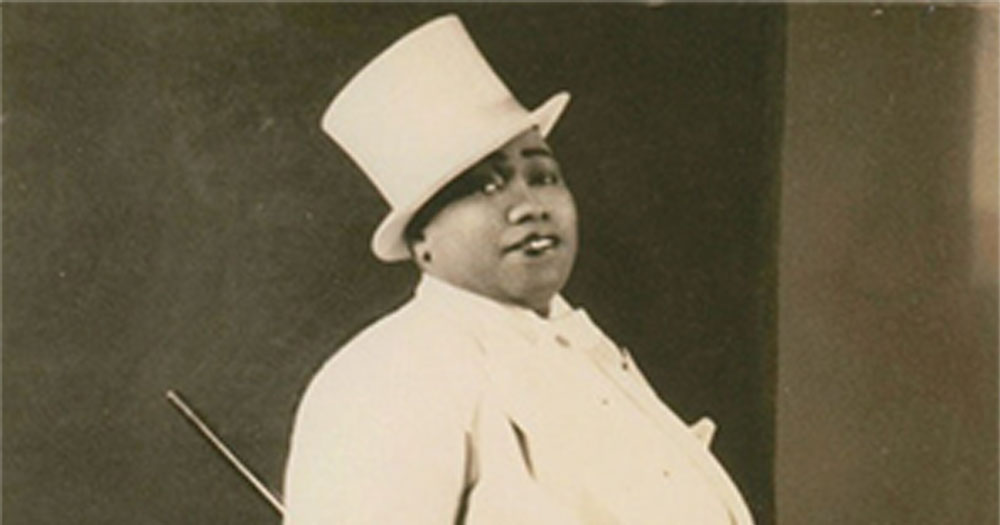As February marks LGBT History Month and Black History Month, we wanted to celebrate the life of an important figure from both histories, Gladys Bentley. A groundbreaking blues singer who defied societal norms, she shook up the Harlem music scene with her gender-nonconforming style and her flirty attitude.
The Harlem Renaissance has continued to have a huge cultural impact not just in America but in the world, shaping music, theatre, dance and literature.
Gladys was born in Philadelphia, Pennsylvania in August 1907 to her mother Mary Mote, a Trinidadian and her father George L. Bentley, who was African American. Bentley had never conformed to gendered clothing, wearing her brother’s suits and often had crushes on her female teachers.
Due to her breaking societal norms at such a young age, her family brought her to see a few doctors in an attempt to “fix” her. Obviously, this attempt was unsuccessful and her family’s lack of acceptance pushed her into creating music to escape her reality.
Bentley left her home in Philadelphia in 1925, for the New York City Broadway scene. She had a deep alto voice, songwriting skills and ability to play piano. Gladys got a Broadway gig which paid her $400. She then moved from New York City to Harlem, where they were more accepting of sexually fluid people.
This was during the period known as the Harlem Renaissance, which was a cultural and intellectual revival of African American music, dance, art, politics and more. Harlem was the centre of this revival as it was the home for many African American people who were facing oppression and the challenges of the Great Depression. It was also a place for people to escape Jim Crow laws.
To get by, Bentley would sing at ‘rent parties’, which were one of the few spaces that were safe for lesbians. Here she gained popularity due to her songs which were sexual parodies of popular hits of the time. She played as an entertainer at the Mad House, and while her boss was unsure at first as she was a non-feminine lesbian, her outstanding talents spoke for themselves.
As Harlem was one of the few places that had alcohol during the Prohibition era, many rich white people would come to visit these clubs. Bentley soon became the biggest talent for the venue and began to headline other venues as well. Surprisingly, her masculine dress sense and showmanship—which included flirting with her female audience and roasting the male audience—drew in audiences.
View this post on Instagram
Gladys Bentley often enjoyed causing controversy and told a gossip columnist that she had married a white woman. However, being a gender-nonconforming lesbian at this time was very difficult due to such harsh misogyny that women faced. During WW2 and the post-war era, her success began to dwindle as clubs were being shut down.
At this time, many queer people were losing their jobs and their finances and even being jailed. Transgender people were being beaten and killed. Gladys began publicly wearing dresses and long braids, saying that at 45 she married a 20-something-year-old male line cook. She also claimed to have cured her homosexuality by taking estrogen. Initially, she blamed her mother for her ‘gender confusion’ as she wanted another son.
She later moved to California to live with her mother, where she kept recording music and touring. She “toned down” her act and was to be ordained as a minister in the Temple of Love, Inc.
Gladys Bentley died at 52 years old in 1960 from pneumonia. Although her life went in a different direction, she created a path for many more artists to follow. Her art and defiance still are important today and she deserves to be recognised, celebrated and remembered for the impact she made.
© 2025 GCN (Gay Community News). All rights reserved.
Support GCN
GCN is a free, vital resource for Ireland’s LGBTQ+ community since 1988.
GCN is a trading name of National LGBT Federation CLG, a registered charity - Charity Number: 20034580.
GCN relies on the generous support of the community and allies to sustain the crucial work that we do. Producing GCN is costly, and, in an industry which has been hugely impacted by rising costs, we need your support to help sustain and grow this vital resource.
Supporting GCN for as little as €1.99 per month will help us continue our work as Ireland’s free, independent LGBTQ+ media.
